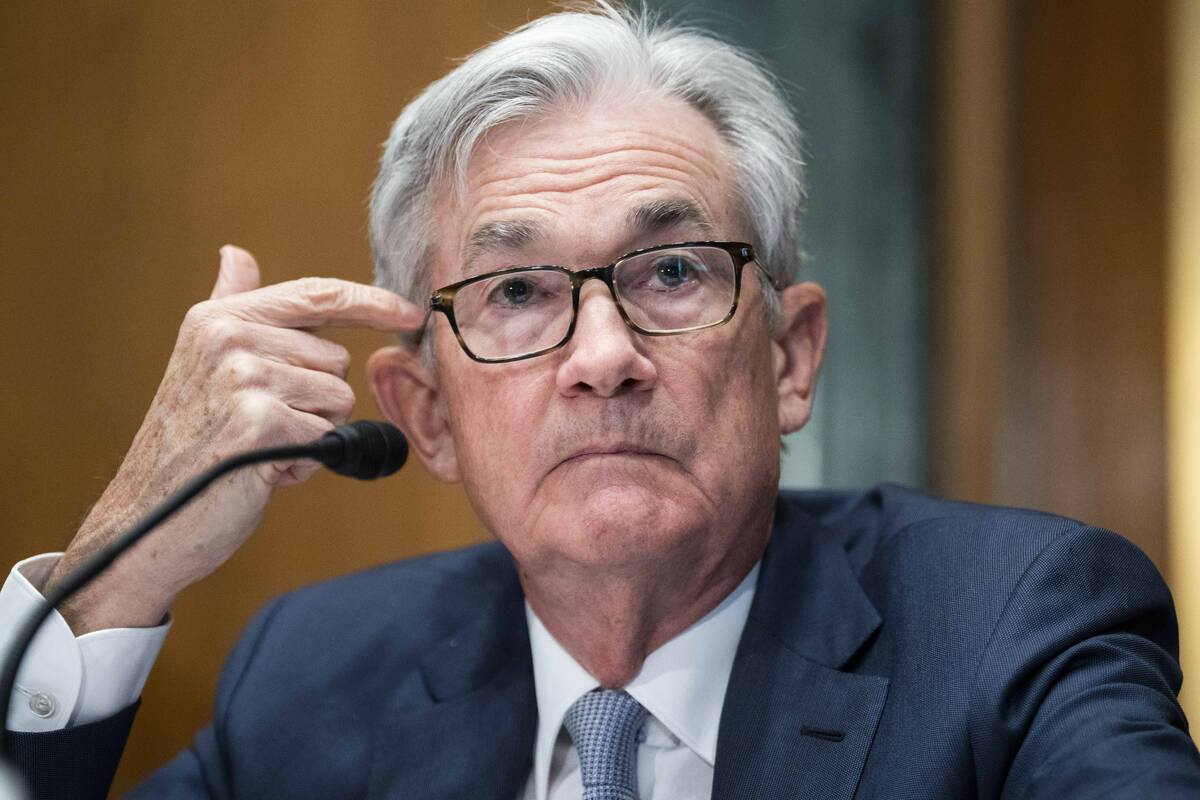Fed attempts to tame inflation with most aggressive rate hike in 22 years
WASHINGTON — The Federal Reserve intensified its fight against the worst inflation in 40 years by raising its benchmark short-term interest rate by a half-percentage point Wednesday — its most aggressive move since 2000 — and signaling further large rate hikes to come.
The increase in the Fed’s key rate raised it to a range of 0.75% to 1%, the highest point since the pandemic struck two years ago.
The Fed also announced that it will start reducing its huge $9 trillion balance sheet, which consists mainly of Treasury and mortgage bonds. Those holdings more than doubled after the pandemic recession hit as the Fed bought trillions in bonds to try to hold down long-term borrowing rates. Reducing the Fed’s holdings will have the effect of further raising loan costs throughout the economy.
All told, the Fed’s credit tightening will likely mean higher loan rates for many consumers and businesses over time, including for mortgages, credit cards and auto loans. With prices for food, energy and consumer goods accelerating, the Fed’s goal is to cool spending — and economic growth — by making it more expensive for individuals and businesses to borrow. The central bank hopes that higher borrowing costs will slow spending enough to tame inflation yet not so much as to cause a recession.
It will be a delicate balancing act. The Fed has endured widespread criticism that it was too slow to start tightening credit, and many economists are skeptical that it can avoid causing a recession.
In their statement Wednesday, the central bank’s policymakers said they are “highly attentive to inflation risks.” The statement also noted that Russia’s invasion of Ukraine is worsening inflation pressures by raising oil and food prices. It added that “COVID-related lockdowns in China are likely to exacerbate supply chain disruptions,” which could further boost inflation.
Inflation, according to the Fed’s preferred gauge, reached 6.6% last month, the highest point in four decades. Inflation has been accelerated by a combination of robust consumer spending, chronic supply bottlenecks and sharply higher gas and food prices, exacerbated by Russia’s war against Ukraine.
Starting June 1, the Fed said it would allow up to $48 billion in bonds to mature without replacing them, a pace that would reach $95 billion by September. At September’s pace, its balance sheet would shrink by about $1 trillion a year.
Chair Jerome Powell has said he wants to quickly raise the Fed’s rate to a level that neither stimulates nor restrains economic growth. Fed officials have suggested that they will reach that point, which the Fed says is about 2.4%, by year’s end.
The Fed’s credit tightening is already having some effect on the economy. Sales of existing homes sank 2.7% from February to March, reflecting a surge in mortgage rates related, in part, to the Fed’s planned rate hikes. The average rate on a 30-year mortgage has jumped 2 percentage points just since the start of the year, to 5.1%.
Yet by most measures, the overall economy remains healthy. This is especially true of the U.S. job market: Hiring is strong, layoffs are few, unemployment is near a five-decade low and the number of job openings has reached a record high.
Powell has pointed to the widespread availability of jobs as evidence that the labor market is tight — “to an unhealthy level” that would tend to fuel inflation. The Fed char is betting that higher rates can reduce those openings, which would presumably slow wage increases and ease inflationary pressures, without triggering mass layoffs.
For now, with hiring robust — the economy has added at least 400,000 jobs for 11 straight months — and employers grappling with labor shortages, wages are rising at a roughly 5% annual pace. Those pay raises are driving steady consumer spending despite spiking prices. In March, consumers increased their spending 0.2% even after adjusting for inflation.
Even if the Fed’s benchmark rate were to go as high as 2.5% by year’s end, Powell said last month, the policymakers may still tighten credit further — to a level that would restrain growth — “if that turns out to be appropriate.”
Financial markets are pricing in a rate as high as 3.6% by mid-2023, which would be the highest in 15 years. Shrinking the Fed’s balance sheet will add another layer of uncertainty surrounding how much the Fed’s actions may weaken the economy.
Complicating the Fed’s task is a slowdown in global growth. COVID-19 lockdowns in China are threatening to cause a recession in the world’s second-largest economy. And the European Union is facing higher energy prices and supply chain disruptions after Russia’s invasion of Ukraine.
What’s more, other central banks around the world are also raising rates, a trend that could further imperil global growth. On Thursday, the Bank of England is expected to raise its key rate for the fourth straight time. The Reserve Bank of Australia increased its rate Tuesday for the first time in 11 years.
And the European Central Bank, which is grappling with slower growth than in the United States or the United Kingdom, may raise rates in July, economists expect.

















